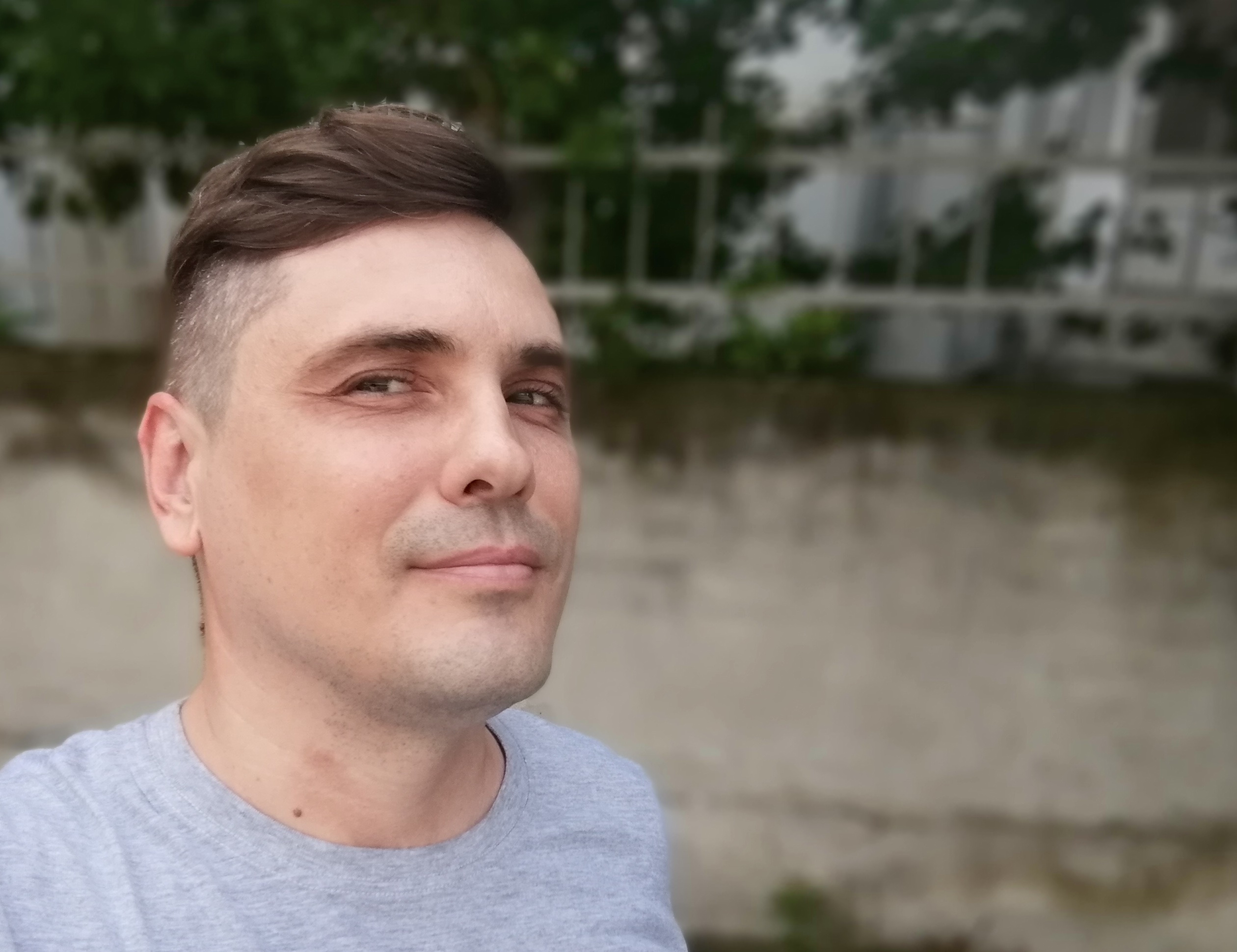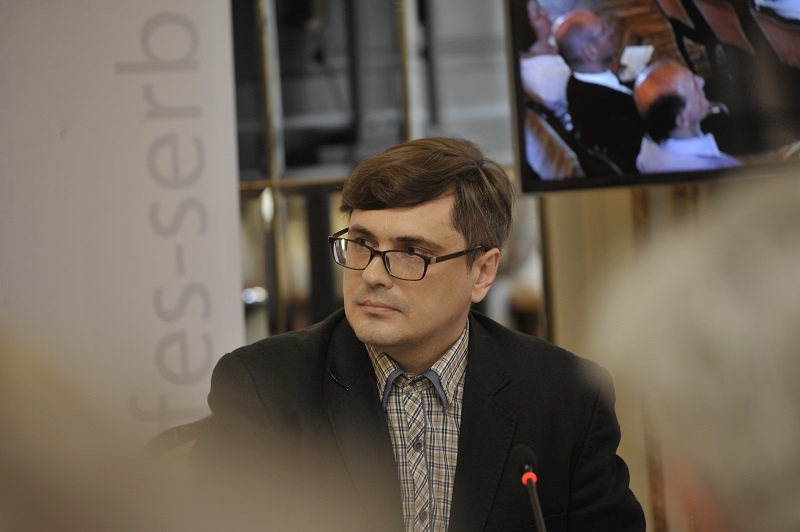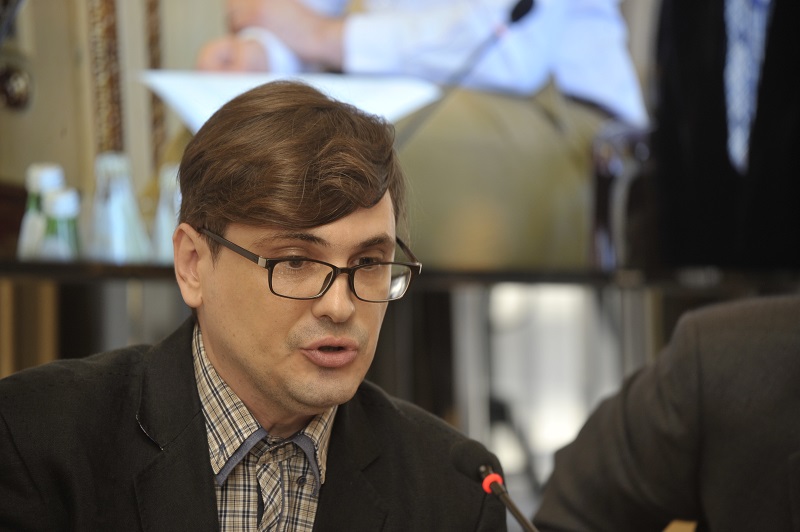The economic and legal systems are paramount, we can be different culturally
TEXT: ŽIKICA MILOŠEVIĆ

Boris Varga has combined different identities within himself – both a Ruthenian and Yugoslav, he studied in Ukraine and speaks many languages, in which he thinks and writes. He has a sharp tongue and clear views and is a frequent interlocutor of both domestic and foreign media when they need a political analysis of the Balkans and Eastern Europe.
The current situation is burdensome for a number of reasons. Macron has obviously decided to endorse the „EU First“ strategy, namely he wants first to consolidate the EU as it is, and it is quite heterogeneous. The UK has been trying to get out of the way, and since 2004, the EU is bigger for 14 countries, of which only two had a tradition of capitalist democracy – Malta and Cyprus (by 1990) while 11 were former socialist countries, new to the experience of liberal democracy. Now, they are wrestling with the problems of the media and judicial control, nationalism and migrants. They feel like a bump-er of “the old Europe”. There is a big cultural gap between them, as if they were “sewn together” by someone. We also have a “third Europe”, in limbo, which stretches from Turkey, Georgia, Ukraine and Moldova to the Western Balkans. There is also a „fourth Europe“, that is the Eurasian Union. Which direction should “the third Europe” take?
— I think the future of our region depends on the EU and the West, and not so much Russia and China. Firstly, we have declared our primary goals, and secondly, we belong here, both geographically and politically. The current problem is a lack of vision of what the EU is. Macron tries to impose himself as a leader in making sense of what Europe is, while Angela Merkel is withdrawing. He is the one who defines the geopolitical construction. We’ve heard so many times the phrase that „the EU has no alternative“, but an alternative does exist. Maybe that’s not membership in the Eurasian Union (EAU), but rather it’s a balancing act which is a bad scenario for Serbia. Vučić is relieved by Macron’s attitude because it’s easier for him to balance. He turned out to be cunningly wise. Zaev did not, as he honestly changed the name of the country. The EU made a dangerous precedent here, and I hope they will correct it soon. NATO is a kind of substitution. Montenegro and Albania, together with Macedonia, will form a sort of an “Adriatic-Ionian” NATO zone, while the other part of the region will stay out of that zone. However, the West will do everything in its power to keep Bosnia and Herzegovina and Serbia away from Russia military-wise.
They say that the USSR fell apart when the gap between Estonia and Tajikistan was 6:1 in terms of wealth, as did Yugoslavia, when there was the same gap between Slovenia and Kosovo. Now, the gap between Luxembourg and Bulgaria is similar. This has also caused the migrations that, in part, led to Brexit. Intra-European migrations are quite visible. Is the EU strong enough economically to accept new members? Even if we all join NATO and behave like Zaev, are they willing take in poorer coun-tries after the global economic crisis and the Greek crisis?
— The problem with their financial consolidation is not completely resolved. Integration, control and greater regulation have not been fully implemented. The EU could swallow WB6 economically if it were not to the detriment of developed countries. They could import problems and conflicts that have not been resolved, and this is something they don’t want to do – they did already it with Cyprus. In terms of the wider region, the political issues are much bigger than the economic. In this limbo, Turkey and Ukraine serve as two opposite examples. The EU overshadows Turkey economically but not politically. Also, there is a cultural moment here to consider – can the EU take in tens of millions of Muslims? Ukraine suits the EU politically, but not economically, because Ukraine is weak – 40 million people and a huge systemic corruption are unacceptable to the EU. Having Syria, Iran and Russia for neighbours also poses a problem.
How did Russia got lost?
— The problem lies in the West’s duplicity towards Russia. After the fall of the USSR, during the Yeltsin era, the West turned a blind eye to enormous corruption and looting, and when Putin came to power, everything started to bother them all of a sudden. But this is not just about one man. After the 1998 devaluation of the ruble, the elites concluded that they had made enough money in the whole “east-west plot”, and decided to stop that mayhem with the help of Putin. And then the West started going on about human rights and democracy. Let’s not forget that the same Western countries have been involved in systemic corruption and liberal neo-colonialism for 10 years. So, where is this visionary who can make a deal with the present Russia?

In December 1991, when Gorbachev broadcasted on TV that the USSR was no longer, there was a great opportunity to Eu-ropeanize and accept all these countries, from Moldova, Azerbaijan and Georgia to Ukraine. It seemed that the West was not that keen to take them under its wing. It rather promoted wars and poverty and extracted mon-ey from these countries while they remained poisoned by nationalism and tycoonization and having to deal with an unfinished state. We, here, resemble unruly crowd who is at each other’s throats, but who swear that they will get along just fine once they join the EU.
— I think that was a huge mistake, although it is an extraordinary task for any politician to draw a former empire closer rather than to im-port its problems and ambitions. On this example, you can see how great a politician is. The perfect example of this is when eight Eastern European countries joined the EU in 2004. This somehow coincided with the “Orange Revolution”. I did my doctoral thesis on this subject and my position is ambivalent – maybe 2004 was good for Ukraine, but bad for the entire former USSR region. Putin thought that the US extending its arm to Russia as an ally in Afghanistan in 2001 was enough, and he saw all these “colorful revolutions” as a blow. The West missed out on an opportunity to have a fresh start with Russia in the 1990s after the “Orange Revolution” and the “Rose Revolution” which additionally frustrated Moscow. It was a bad call for Russia to rely on Shevardnadze and Kuchma up until then, but it was also a great opportunity for the West to export political technology there, which previously proved to be efficient against Milošević and Mečiar. This is also the case with the Western Balkans. Just like in the former USSR, where the West was not bothered with democracy, corruption and law, but won over individual countries by frustrating Russia, now, it is doing the same thing with the Western Balkans. The mistake made with the USSR in 1991 is now being made in the case of the Western Balkans. The so-called Mini Schengen should have been established right after the dissolution of Yugoslavia. Now, we have some kind of negotiations with Kosovo that will definitely fail. And the time is going by pretty fast. Personally, I think Kosovo should be an independent state, but I don’t know how we can reach an agreement on that.
Do you symmetrically advocate that other de facto seceded entities that do not wish to be again a part of their former common state, such as Abkhazia, South Ossetia, Nagorno-Karabakh, Northern Cyprus and Transnistria, should be independent and that Crimea should be a part of Russia?
— I don’t think that’s a matter of symmetry. But I wouldn’t mind if the independence of Kosovo and the former Soviet breakaway re-publics were resolved within the EU and the EAU. Then the problem would be similar to the “Catalan is-sue” rather than having a situation of constantly being on the brink ofa civil war. However, a crisis is created here to entice the parent state to the opposite side. The same goes for the issue of Crimea.
They say that the first countries to enter the EAU will be Mongolia, Tajikistan, Uzbekistan …
— … and Vietnam.
And Tunisia, which is, funnily enough, not in Eurasia but in Africa. Can we talk now about European values? Are they, to quote Teofil Pančić, the values of the West that we are adopting, or as I said, the smallest com-mon storage of Europe from Ice-land to Ukraine and Portugal to Georgia?
— Are we a Europe of cultures or a Europe of markets? Above all, there has to be a common structure in place, a base of economic and legal rules. We should have at least minimal democracy, free elections, freedom of the press and no death sentence. I cheer for Brzezinski’s Europe from Dublin to Vladivostok. But in reality, the EU is an Ameri-can vision to compete with China. I think the aforementioned “Big CEFTA” could in the future respond to the challenge of unstable Eurasia.
That’s what Mikhalkov said in 1999 – that the Balkans, Russia and Central Asia were the bridge of Eurasia and that Eurasian values already existed.
— Yes, but in terms of economic and legal values, we are closer to Europe than China. Europe is more realistic for me in several ways – first there is the Old Europe, then the Eurozone, then the Big CEFTA, then Eurasia, then Central Asia, and only then China. We have to compromise with China. Russia cannot do without Europe, and vice versa, and it is increasingly being left to China. The key issue is relations with Ukraine, which Moscow must resolve.
Orban thinks that Eastern Europeans are a symbol of Europe-an values.
— I don’t think that the Europe of cultures is the point here. Rather, it is the Europe of markets, meaning that we all have to have the same market conditions. If we start focusing on cultures, that will immediately create insurmountable differences. We need a legal base, like in the Austrian-Hungarian Empire, where people mixed among each other. I would love for Eurasia to be formed that way, so, in 100 years, it really would not matter if you were in Kyrgyzstan or Shenzhen.
Authorities are increasingly controlling the media in Serbia. How would you assess the political and media situation? Regardless of the direction, it takes, how can this country be better, less party-centric and make its people stay?
— Vučić has created a modern cult of personality and has reduced the capacity of the institutions, causing unprecedented damage. We are reverting to the time of despots and we are leaving the Europe we talked about, i.e. European markets and rules. We are becoming a one-party state. This is something that will not survive in the 21st century in Europe. Maybe Azerbaijan and Belarus and Turkmenistan can do that because they have oil and gas. Once the people realize that Vučić is guilty of everything, and once he leaves, we will wake up in the year 2000 and realize that we have to build everything from scratch.

WE TRUST LEADERS, BUT…
Do you think that, again, we are going to see a peaceful lawyer emerging, like Koštunica or Zelensky, who is prone to negotiating and reconciling the differences?
— Recent numerous affairs testify to the fact that the Serbian authorities are slowly crumbling and they are not even aware to what extent. We trust leaders, but we can easily turn to others very suddenly. That was the case in the US, Ukraine, France, and Kosovo, after all. Only Facebook and Zuckerberg know who is the Serbian ‘Zelensky’ and he is, quite possibly, a political “newcomer”. I just hope that he is not some kind of Google leader, like Beli Preletačević.